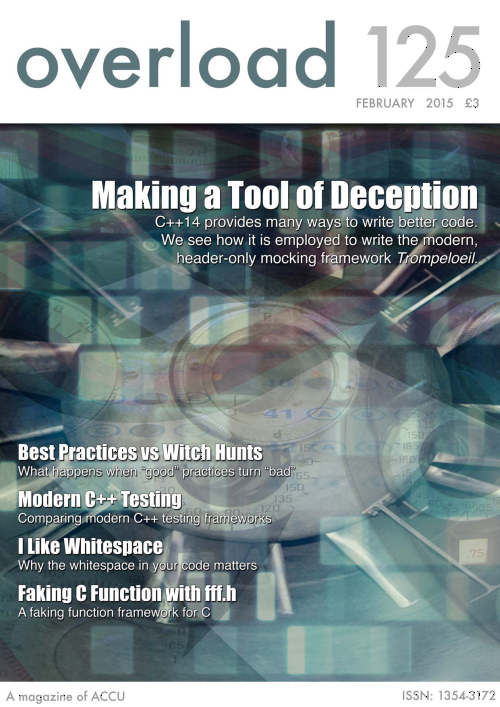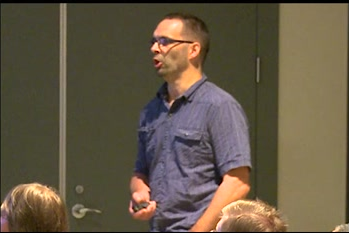Desired compile-time failures--Andrzej Krzemieński
Sometimes, an error is what we want:
Desired compile-time failures
by Andrzej Krzemieński
From the article:
However, even though [not introducing breaking changes] works in most of the cases, I believe that this criterion of a “safe addition” is not technically correct, as it fails to take into account an important fact: failure to compile certain programs is a useful, important feature, and if these programs suddenly start to compile, it can cause harm. In this post we will go through the cases where compile-time failure is considered a useful feature...


 While we wait for CppCon 2015 in September, we’re featuring videos of some of the 100+ talks from CppCon 2014. Here is today’s feature:
While we wait for CppCon 2015 in September, we’re featuring videos of some of the 100+ talks from CppCon 2014. Here is today’s feature: While we wait for CppCon 2015 in September, we’re featuring videos of some of the 100+ talks from CppCon 2014. Here is today’s feature:
While we wait for CppCon 2015 in September, we’re featuring videos of some of the 100+ talks from CppCon 2014. Here is today’s feature: